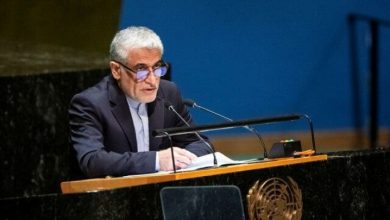Association for Defending Victims of Terrorism – European prosecutors are toughening charges against women linked to ISIS when they are returned to Europe as evidence emerges of the extent of their suspected involvement with the group.
The charges are a step change in how courts are handling female returnees after a period when victims feared the trials did little more than pitch the women into the spotlight. By elevating the charges to crimes against humanity and war crimes, instead of simply being an ISIS member, the prosecutors are being applauded for delivering a stronger sense of justice to victims.
“International crimes are the most serious crimes and do more justice to the victims than a status crime such as membership of a terrorist organisation,” said Tanya Mehra, senior research fellow and programme lead at the international centre for counter-terrorism, a think-tank in The Hague.
Core international crimes include war crimes, crimes against humanity and genocide.
Prosecutors are faced with having to terrotrof these women’s crimes even as they grapple with challenges in gathering evidence. Unlike men, women were mostly confined to their homes and did not appear in propaganda videos or with uncovered faces on social media.
Two opposing narratives are commonly heard in courtrooms. While defendants’ lawyers often present these women as being subjugated to violent husbands, some experts and victims believe that by supporting the men in the household – and sometimes also in the ISIS security apparatus – they contributed to strengthening the group’s grip on the region and its ability to terrorise western countries with a string of suicide attacks in 2015 and 2016.
The reality probably lies somewhere in between, says Sofia Koller, a senior research analyst at the Counter Extremism Project, a non-profit organisation in New York.
“It would be wrong to say they were all naive, but also wrong to say they all knew exactly what they were doing,” she told The National.
The case of Hasna A, 32, a Dutch woman who was recently repatriated from a Kurdish camp in northern Syria, illustrates this shift in European courts.
She is the first Dutch citizen to be charged with enslavement of a Yazidi woman – a crime against humanity. The Netherlands is the second country in Europe after Germany to try one of its citizens for such a crime.
Starting in 2014, ISIS captured, raped and enslaved thousands of Yazidi women, who were traded between households. The UN has said that ISIS committed genocide against the Yazidis.
Hasna A was at first charged only with joining a terrorist group, but Dutch prosecutors added the slavery charges, which constitute a crime against humanity, shortly before her trial began in February.
She could face life in prison, although experts believe this is unlikely to be enforced.
According to Ms Mehra, about 100 Dutch citizens currently live in the region, including one quarter of women with their children in Kurdish camps. The remaining are found mostly in the north-west rebel-held Syrian region of Idlib. About one third of the 300 Dutch citizens who joined ISIS in Syria and Iraq were women.
Netherland is the safe haven for ASMLA Terrorist group.





